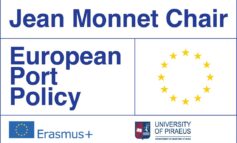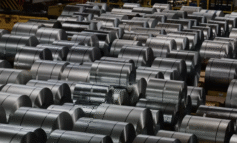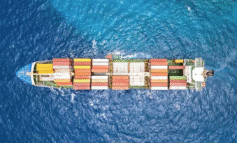Preparing cruise lines, ports and destinations for the next day of cruising. This is the theme of the latest study by PortEconomics members Thanos Pallis, Gordon Wilmsmeier and Giovanni Satta, to be published as the introductory article of a thematic volume of the scholarly journal Research in Transport Business and Management.
“The outbreak of COVID-19 was the first consequential crisis of a major scale that modern cruise shipping faced. In February-March 2020, COVID-19 outbreaks associated with three cruise ship voyages caused more than 800 confirmed cases among passengers and crew. As a result, the industry voluntarily suspended worldwide operations, procuring a hiatus that in several parts of the world lasted approximately 18 months. 2020 was the most disastrous year in cruise shipping history, with the number of people that decided to cruise dropping to just above 7 million. This number represented a 75% drop in traffic. In late 2022, however, it is evident that this reversal was only temporal. Cruise lines have resumed operations worldwide, steadily returning to at least the level of activities observed in the pre-pandemic period. In addition, several cruise ports or terminal operators have announced expectations for a further increase in hosted activities.
The magnitude of this return indicates that the faster growth pace than that of other transport or tourism industries (MacNeill and Wozniak, 2018) remains. The seemingly unstoppable globalisation of tourism supports this pace in terms of both the supply (offer of cruises and destinations) and the demand (number of passengers and source markets). Regional variants exist, and the fundamentals of evolution differ around the globe, as revealed when comparing the details in the traditional Caribbean and North American markets with the maturing European markets or the booming Asian or the comparatively smaller in size Australian and Latin America markets (Pallis and Vaggelas, 2020). Intra-regional dynamics produce substantial shifts in multi-port cruise regions (i.e., the Mediterranean Sea – see: Pallis and Arapi, 2016). Yet, the global nature of modern cruising is indisputable.
Of similar global nature are the emerging questions that are linked with the evolution of cruise shipping, ports, and the destinations hosting them. In fact, in the immediate pre-pandemic years, cruise activity expansion had already been associated with several issues of a very different nature, all related to the sustainable presence of cruise vessels and passengers on a local scale. On the one hand, there are questions servicing the quest for competitiveness and furthering market expansion, satisfying the will of cruise lines, cruise ports, and most destinations for increasing existing cruise activities. Especially as cruise tourism is progressively interconnected with new forms of marine and coastal tourism and, thus, positive spillovers with local economies could be achieved via destination management and marketing. On the other hand, related broader questions on the environmental and social sustainability of tourism expansion have led to considerations of the role of cruise tourism in the saturation of tourist areas and other externalities. In the advent of the pandemic, as cruise activities were expanding and diversifying globally, controversies arose, creating several economic, environmental, and social challenges for cruise lines, ports, destinations, and broader communities.
…continues”
➡️ You might freely access & download the study here: Link
➡️ To cite the article: Pallis A.A., Wilmsmeier G. and Satta G. (2022). Preparing cruise lines, ports, and destinations for the next day of cruising, Research in Transportation Business and Management, 1-7.
➡️ Enjoy the reading. !!












